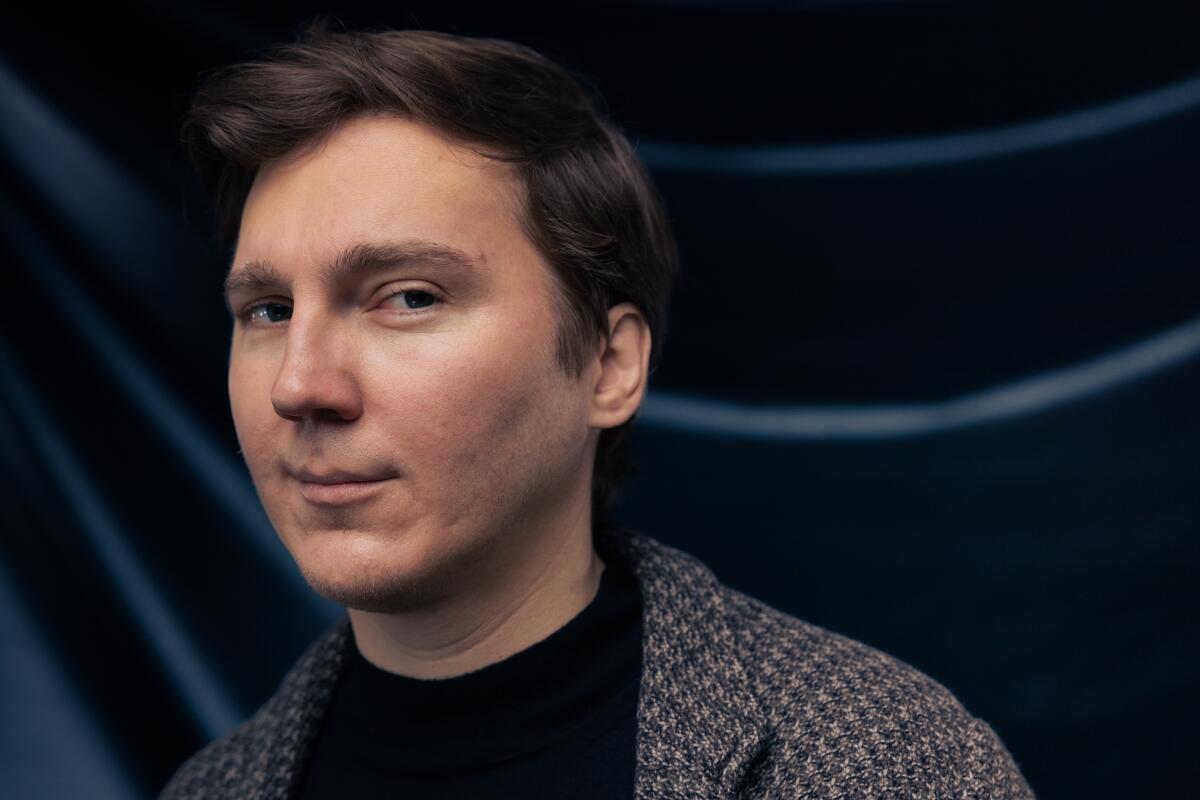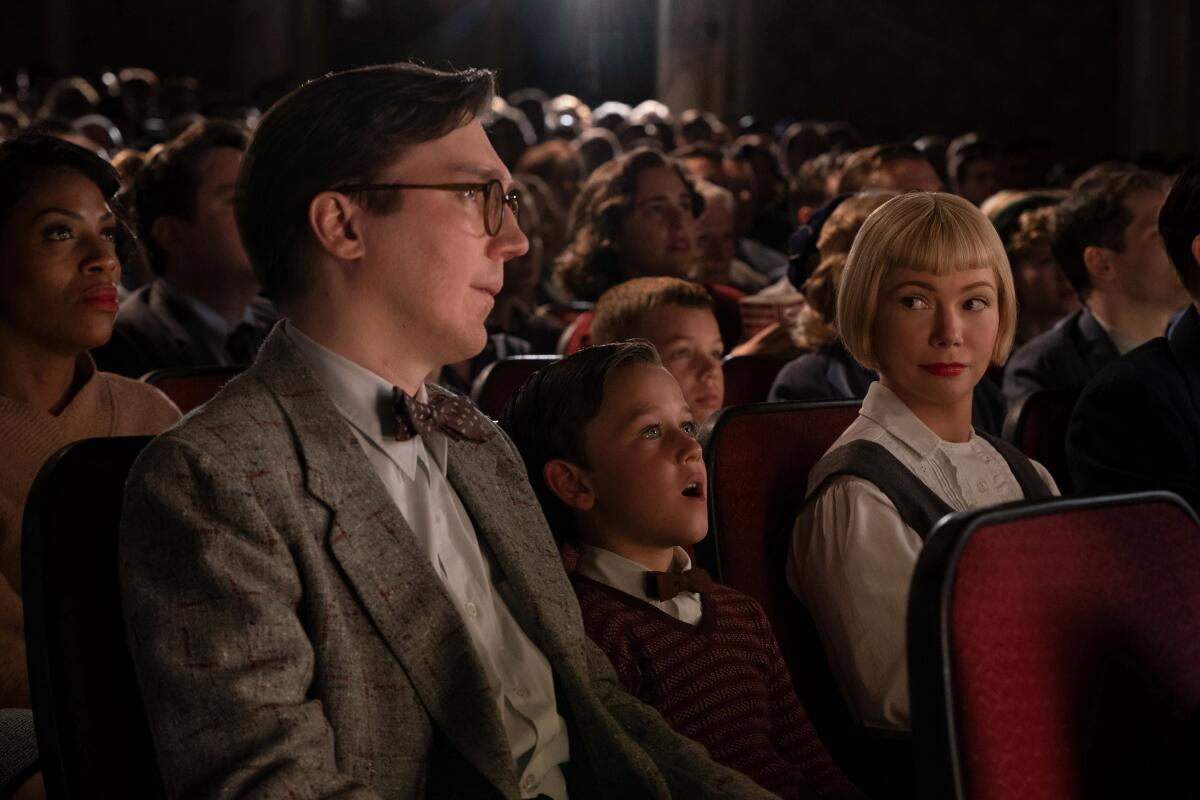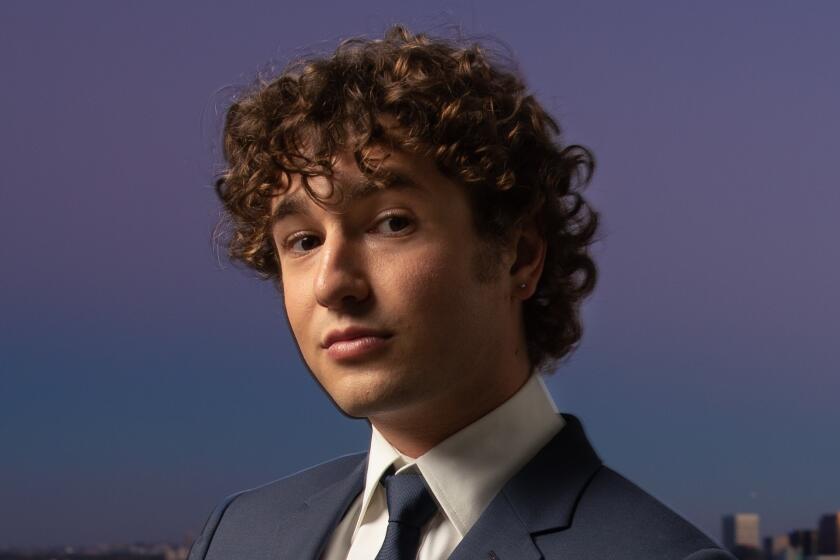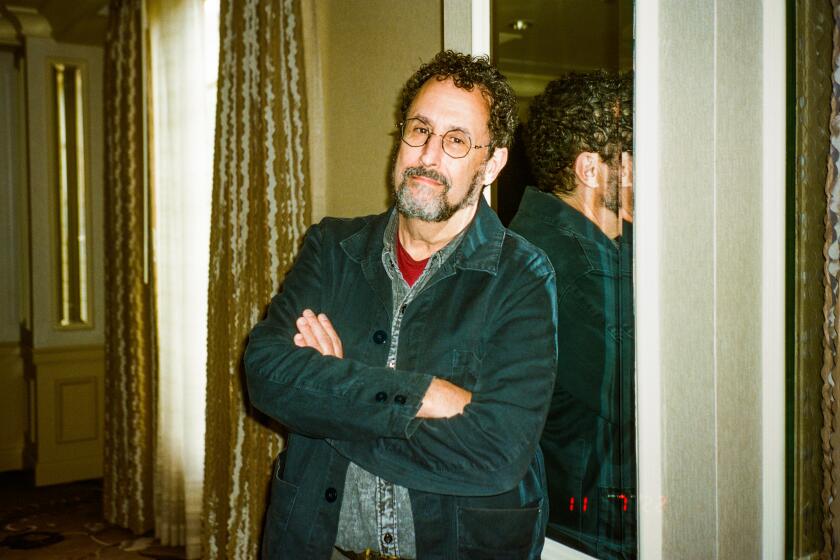Paul Dano steps further into his adult self to play Burt Fabelman for Steven Spielberg

- Share via
Paul Dano has made a career of playing shapeshifting oddballs, including Eli Sunday (and his twin brother) in “There Will Be Blood,” Beach Boys virtuoso Brian Wilson in “Love & Mercy,” and more recently the Riddler in “The Batman.”
Given his eccentric pedigree, Dano says he was initially surprised that Steven Spielberg wanted him for the role of mild-mannered electrical engineer Burt Fabelman, not-so-loosely based on Spielberg’s own father, Arnold. In the coming-of-age drama “The Fabelmans,” Dano represents the calm but anguished center of a family that the actor describes as “a storm.”
Speaking from his home in Brooklyn, where he was hibernating with his family and their 7-week-old baby, Dano described why this rewarding role sometimes felt like “a heavy cloak to bear.”
Spielberg said he knew right away that you were right for the role of Burt Fabelman. Did you know what his criteria was for casting this role?
I told him, our last night of filming, that it would take me a few years to process that he would ask me to play his father.
The young actor kept his cool while playing Steven Spielberg under the watchful eye of ... Steven Spielberg in ‘The Fabelmans.’
When I first met with Steven, I had no clue why I was meeting him. He mentioned a couple of pieces of work of mine, but none of them felt relevant to Burt. Like, he loved “Escape at Dannemora.” And I thought, well, you don’t get from that character to Burt. So, I think there was probably something in my person that had some kind of kinship with Arnold. And I’m touched by that, because I’m not a look-alike.
To be asked by Steven not only to play his father, but to play this man who I found to be incredibly decent and full of integrity … that felt really good. And it was the right timing in my life to get to do that.
Given what we’ve seen in past Spielberg films, “The Fabelmans” is a loving and surprisingly forgiving portrait of his father. Is that something you recognized in the script?

Steven’s parents are in a lot of his films, whether we know it or not. There’s an early interview of Arnold’s that was very important to me. One of the first things he says in it is that “electronics was a way of life for me.” And I think Steven could say “movies are a way of life for me” quite easily. Just like Steven found the camera early on and got glued to it, Arnold built a crystal radio and got hooked on electronics. So there’s a real clear connection. He was a computer genius in a legit way. But he was also a workaholic. “Electronics was a way of life for me” says it all. That was one of the things that went up on my wall.
This is your first time playing a father since becoming a father. And your on-screen son is also a stand-in for your director. How did this impact your relationship to the role?
With some roles, you’re digging into your past or getting in touch with something. But this was about being in a marriage, being a partner, being a father, having a family. And so it felt like the first time where there was a lot of myself, and my life, that I could allow into this. Whereas on something like “The Batman,” you don’t want to set up a boundary, necessarily, but you want the playing fields to be really separate.
It meant a lot to me to play Burt. It felt like a fulcrum point for me — like there’s some shift in me and where I’m at in my life and career. With both of my children, I feel like I’m being asked to step further into my adult self, and playing Burt felt like part of that in some way.
Writer and frequent Steven Spielberg collaborator Tony Kushner finally got the iconic director to dig deep and tell his personal family story.
What kind of access did you have to the real Arnold Spielberg?
I had access to Steven’s family archives — photos, 8-millimeter footage, home video. There were interviews that Arnold had given because he was a World War II veteran and because of the computer industry. There was so much. But there was also Steven and Tony Kushner’s very beautiful screenplay. So we had everything we needed in some ways just with the script, but we also had incredible access.
Because he was an engineer, I literally just thought, well, I’ll build this character. So I gathered materials. I drew a stick figure in my journal, and I thought, where is the center of energy?
I’ve heard that this was quite an emotional set. How did that manifest itself?
It didn’t feel overly emotional to me. It felt good. Steven being that vulnerable only had the most positive trickle-down effect on the entire crew. We had a lot of people who’ve worked with Steven for 20 or 30 years, and they said that this one felt different.
We filmed Burt’s final scene on the one-year anniversary of Arnold’s passing. And it’s a scene where, in some ways, he’s letting his son go. That’s a day I’ll never forget. I like when the stakes feel high, so just to feel that Steven’s heart was with us, and on the line, that’s a good thing.
More to Read
From the Oscars to the Emmys.
Get the Envelope newsletter for exclusive awards season coverage, behind-the-scenes stories from the Envelope podcast and columnist Glenn Whipp’s must-read analysis.
You may occasionally receive promotional content from the Los Angeles Times.











